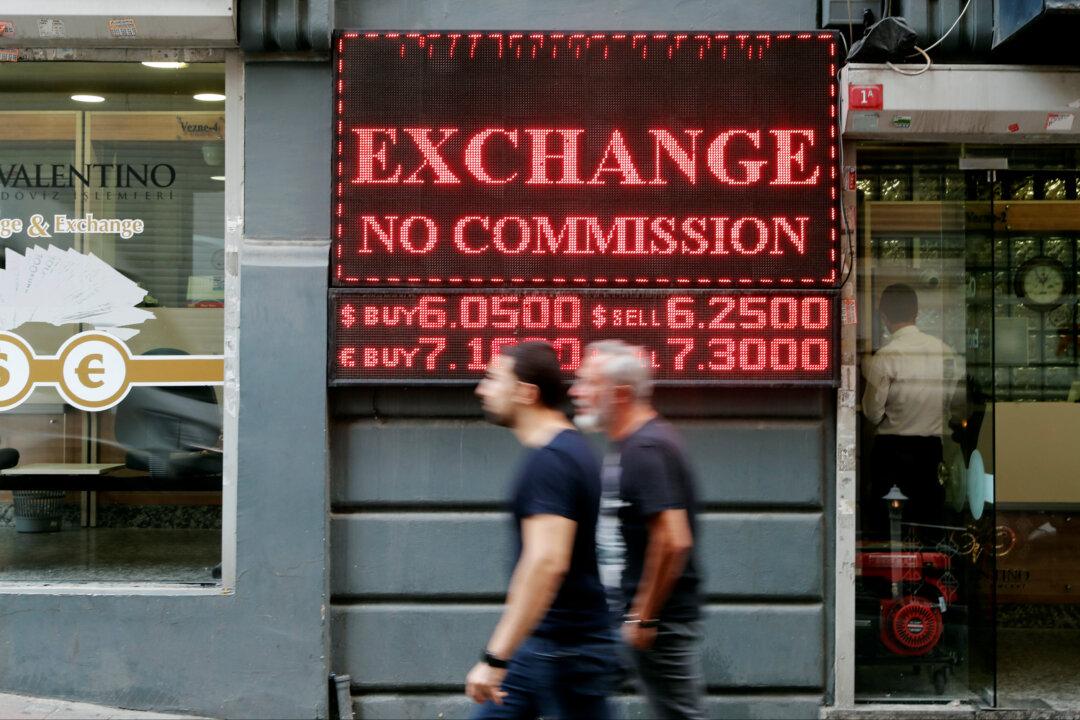ISTANBUL—The Turkish lira weakened on aug. 28 as investors weighed up Turkey’s efforts to manage its rift with the United States after Finance Minister Berat Albayrak said U.S. trade sanctions against Ankara could destabilize the Middle East.
The currency has lost about 38 percent of its value against the dollar this year due to a sell-off accelerated by a row with Washington over an American evangelical Christian pastor detained in Turkey on terrorism charges.





